PCI Compliance And Why It’s Important
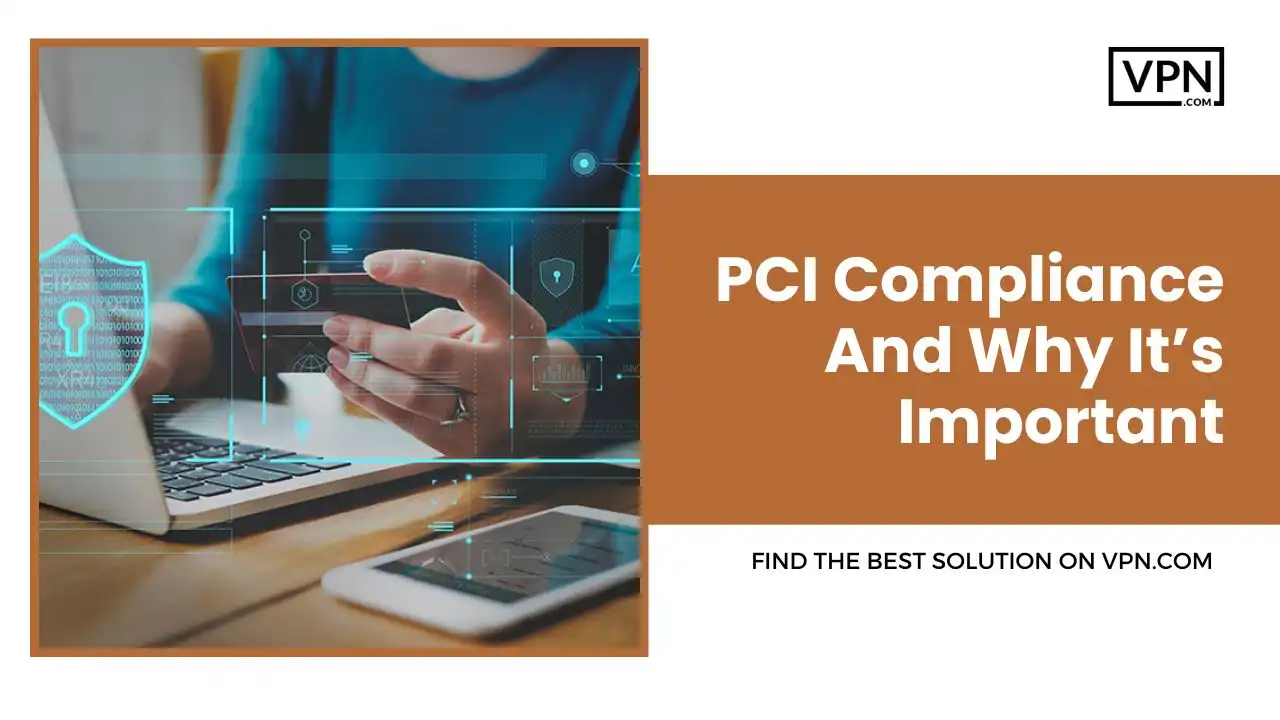
In today’s digital world of the internet, there are a lot of security breaches happening by anonymous attackers. Hence you need to look for PCI compliance that makes your data secure and reliable. PCI compliance has become a critical data security requirement for any business that processes, stores, or transmits credit card payments. Adhering to the PCI Data Security Standard (PCI DSS) is mandatory for protecting sensitive customer payment card data from major breaches, fraud, and catastrophic damages that put companies out of business.
This article outlines what exactly PCI compliance is, its associated requirements, how to achieve and maintain compliance, plus the risks and penalties faced by merchants who ignore this.
What Is PCI Compliance?
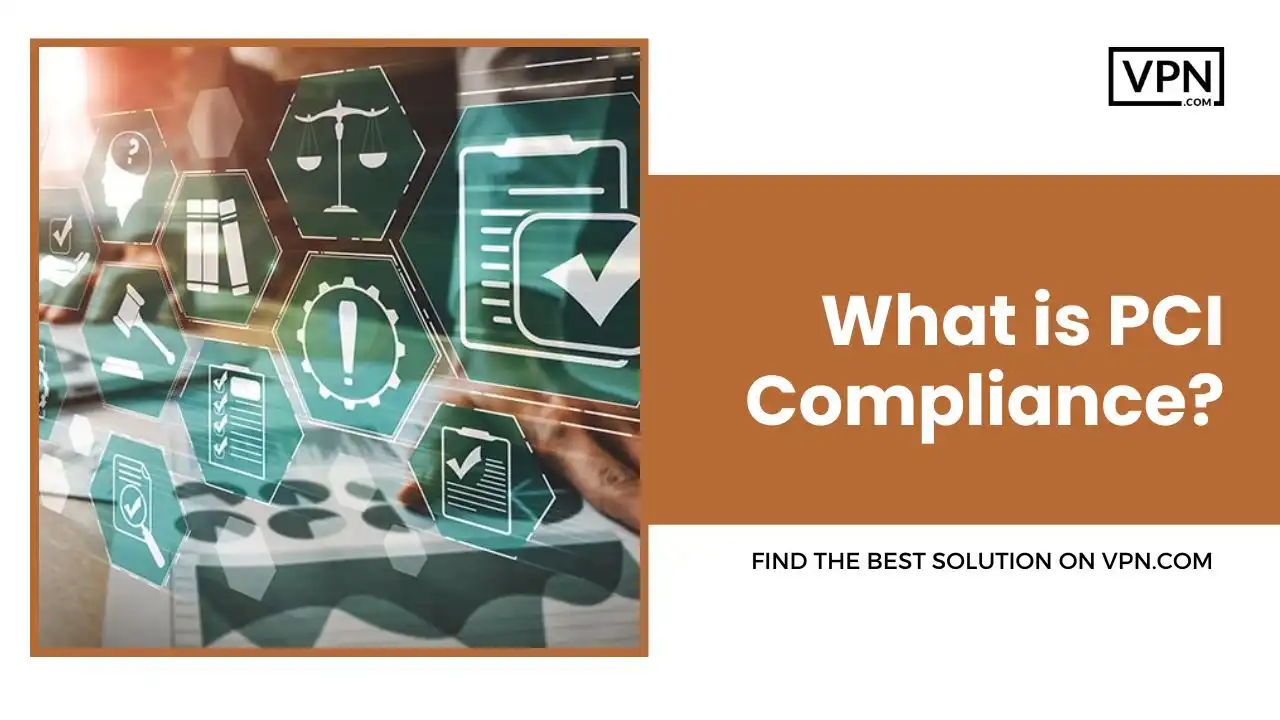
PCI compliance refers to adhering to the comprehensive Payment Card Industry Data Security Standards (PCI DSS) for any entity that handles customer credit or debit card transactions, including retailers, restaurants, hotels, service providers, etc.
Maintaining The PCI Security Standards Council
The PCI Security Standards Council maintains these globally recognized regulations that are designed specifically to prevent fraud via stringent protections around cardholder data flows, IT infrastructure, policies, and other critical areas. Adhering to these mandated safeguards when taking payments ensures customers remain protected against data theft aimed at committing payment fraud or identity crimes using exposed details.
PCI Regulations
All businesses, regardless of size, must comply fully with PCI regulations when processing customer card payments. PCI compliance is not merely a recommendation but rather required by all major credit card brands, processors, and acquiring banks responsible for the payment ecosystem security. Neglecting PCI puts companies and consumers at major risk hence, adherence is compulsory.

Get Started w/ NordVPN Today
- Top-rated VPN for OS unknown
- Ultra-fast speed in US in 2024
- Save 69% off with VPN.com Discount
- Plans starting at $2.99/month
- Rated 4.5/5 on Google Play with over 825,000 reviews
- Rated 4.7/5 on Apple App Store from 6,600 users
Why Do You Need To Be PCI Compliant?
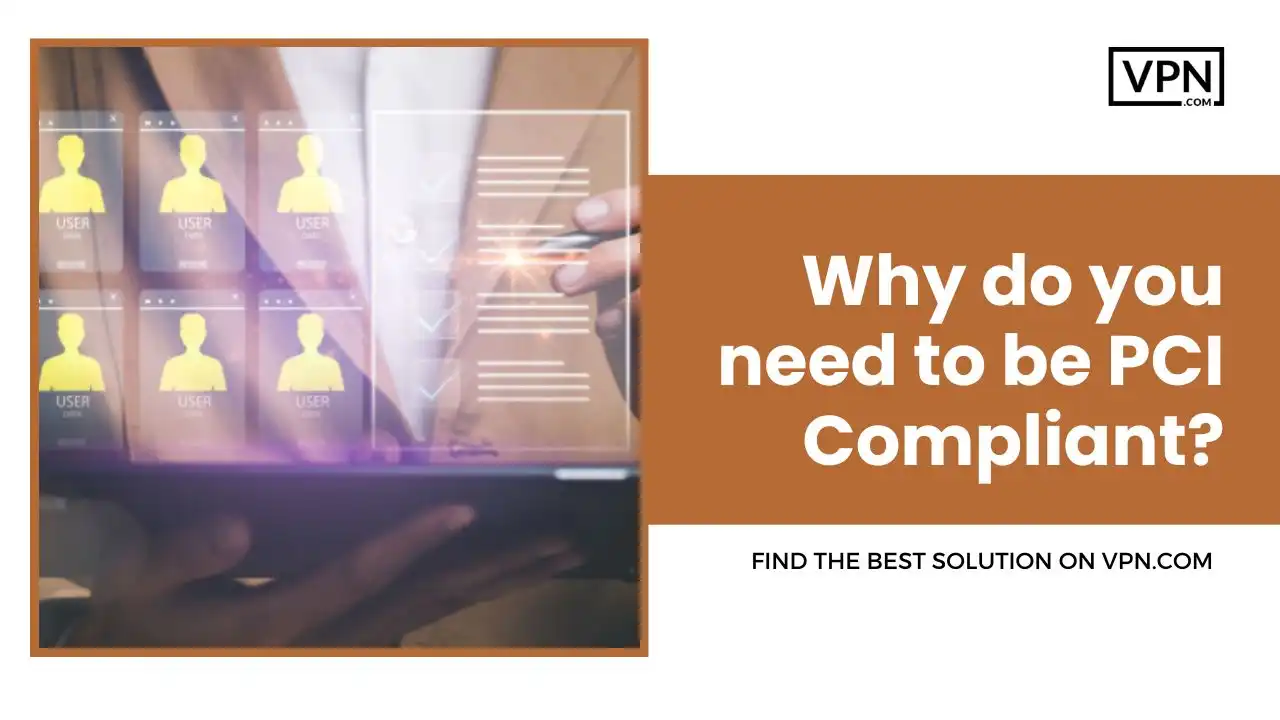
There are crucial reasons every business must strive to uphold full PCI compliance:
Avoid Data Breaches
When customer payment card information gets stolen by hackers, it’s a nightmare for both consumers and businesses. People suddenly see fraudulent charges while merchants face fines, lawsuits, and angry customers who no longer trust them. Not fun.
Many hacks target stores ignoring PCI rules that force security precautions like encrypting data or more complex passwords to protect computers.
So, compliance prevents most attacks aimed at stealing credit details by removing the weaknesses bad guys exploit. Think of PCI rules as brakes stopping data thefts from speeding out of control.
Avoid Penalties
When hackers do steal cards despite PCI efforts, credit card companies and banks levy heavy fines on merchants, sometimes over half a million dollars per incident! Even worse, they may ban lawbreaking stores from accepting any cards in the future essentially closing businesses overnight. That’s why understanding PCI compliance as mandatory instead of optional is so important – ignoring it risks merchant account suspensions and sinking operations. Consider fines and banned accounts as the painful penalties suffered for non-compliance.
Build Customer Trust
Consumers today are understandably nervous about card fraud. However,r seeing stores make PCI compliance and security a priority reassures the shoppers that they get greater financial protection. This customer trust drives sales, recommendations, and loyalty over safer options. Neglecting compliance erodes that trust after inevitable hacking headlines. Maintaining PCI adherence signals customers their data matters, a big competitive advantage as threats rise.
Save Money
All those fines, legal costs, disrupted sales, and tech expenses from hack investigations or fixing damaged systems are massive burdens for merchants large and small. But PCI adherence cuts hundreds of thousands in breach bills down to reasonable compliance costs instead. When security requirements change, costs to implement new protocols stay modest. Staying compliant saves big over major breach episodes down the road. Skip compliance and you may pay sorely later.
PCI compliance is truly mandatory for taking card payments securely and remaining in business. The consequences of neglecting compliance make the requirements unavoidable.
What Happens If Your Business Is Not PCI compliant?
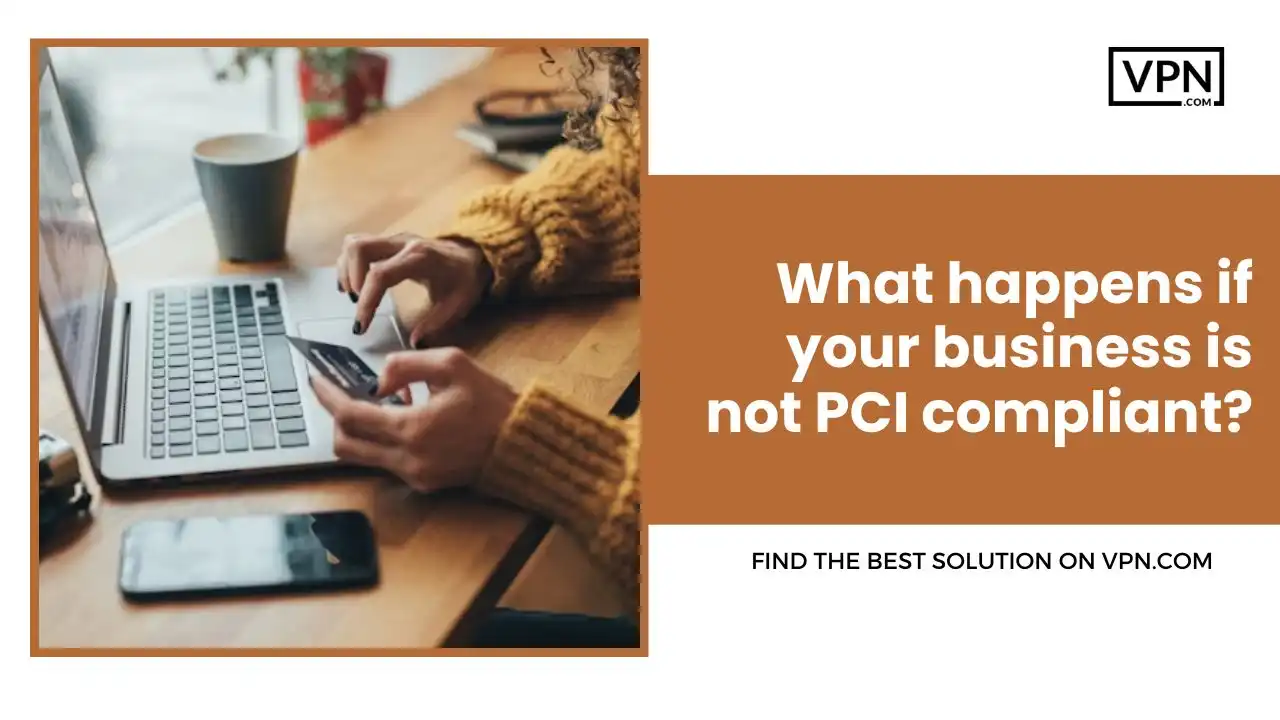
If companies fail to adhere to all major conditions within PCI DSS rules or suffer a severe customer card data breach linked to non-compliance, catastrophic damages ensue:
Big Fines
When PCI audits and security precautions get ignored only to have hackers steal customer payment card data, the credit card companies and banks don’t take kindly to merchants, putting users at financial risk. Huge fines from $5,000 up to $500,000 PER MONTH often hit non-compliant retailers by card providers and payment processors. For severe or repeat violations, expect even bigger seven-figure penalties exceeding $1 million. Just like speeding tickets, merchants not following PCI’s security “speed limits” face steep citations increasing the longer they continue down that dangerous road.
Blacklisting
Worse than fines, retailers dependent on processing credit transactions for most sales can have their merchant accounts outright suspended by banks for serious PCI non-compliance violations or data breaches, exposing buyers to continual fraud risks. Blacklisted by acquirers, these retailers ultimately close overnight when suddenly unable to accept any card payments in-store or online devastating their business. It’s like having your driver’s license revoked for unsafe data security practices, putting everyone at risk over time.
Lawsuits
After major hacks and data incidents, card providers tend to aggressively sue non-compliant merchants for negligence, demanding expensive legal damages sought to cover all the rampant fraud unleashed impacting issuing banks and card users victimized by preventable data breaches tracing back to businesses cutting corners on PCI adherence. Think class action but targeting only the retailer responsible rather than users suing Equifax. Without compliance, expect seven-figure lawsuit payments.
Reputation Destruction
Today, just one bad data breach makes national headlines, destroying the credibility and trust consumers place in affected brands, especially smaller names barely recovering those losses if ever. People understandably avoid merchants being viewed as sloppy with their financial safety once hackers access names, cards, addresses,s, etc. due to some overlooked PCI gap years back.
The reputational carnage alone keeps many customers from ever returning after personal data factors into hackers’ hands every time. Surviving businesses must invest properly in PCI even without fines and blacklists given the lasting consumer trust damage data incidents cultivate now.
Maintaining full PCI compliance protects companies from the existential threats above. For most merchants, anything short of 100% adherence year-round positions the business for financial/legal risks and consumer trust erosion from which recovery is uncertain. Much like insurance, staying secure guarantees continuity.
PCI DSS Compliance Requirement Checklist
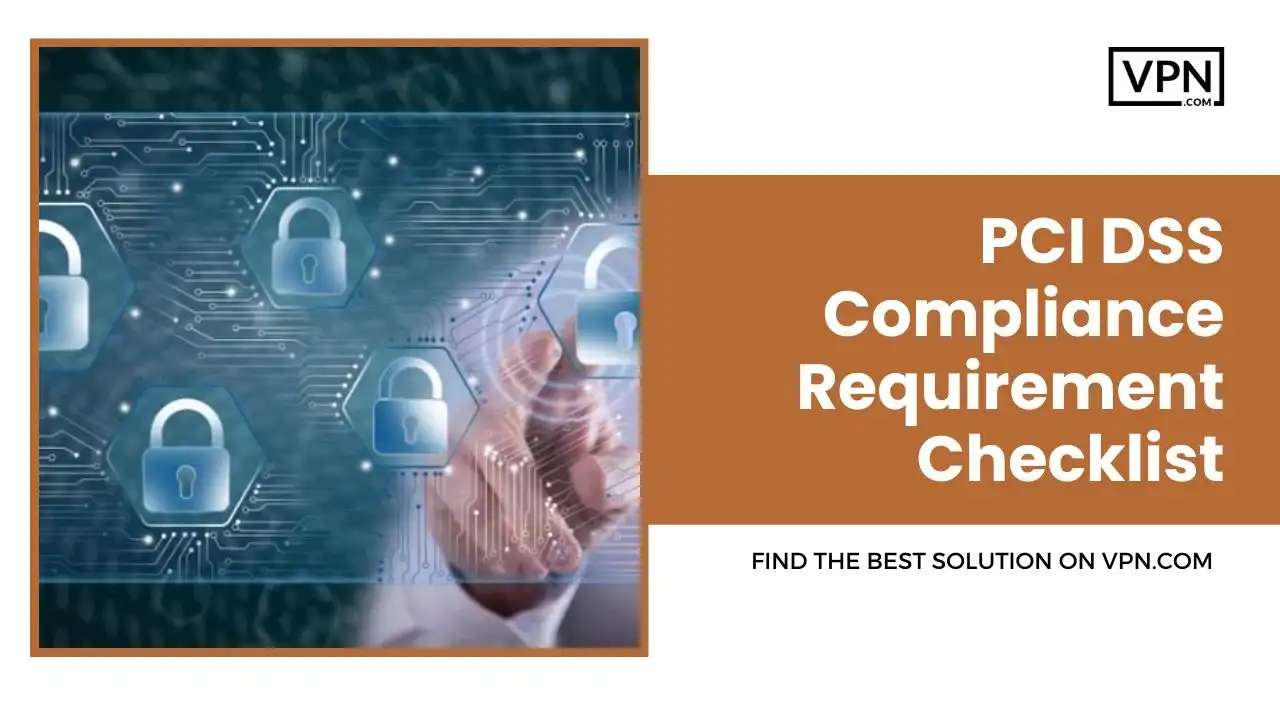
Adhering to PCI mandates involves numerous specific policies, processes, and technology measures across 12 defined areas outlined in the PCI Data Security Standard. These include:
Requirement 1: Firewalls
Setting up strong firewall security between public-facing websites or devices and internal payment systems is like installing thick steel doors on all back office entries. Firewalls function as traffic cops, only allowing authorized connections while blocking shady activity. They add crucial early protections for sensitive card data against internet thieves lurking externally. Proper configuring, updating, and testing ensure these defenses actively repel unauthorized access attempts.
Requirement 2: Change Default Passwords
Leaving default vendor passwords or settings in place enables hackers easy access, much like retained factory configurations on house locks enable burglars’ effortless entry. Malicious actors aggressively target common defaults across devices and programs that manufacturers ship to customers. Thus, PCI compliance requirements mandate changing these to customized credentials only known company-wide. This simple yet widely overlooked step significantly upgrades early vulnerability protections.
Requirement 3: Mask/Encrypt Stored Card Data
Should card payment systems get breached despite defenses, PCI requires concealing or scrambling sensitive data elements like card numbers, so stolen files become useless. Masking displays only the last few digits, hiding the full numbers. Encryption utilizes complex algorithms to entirely garble data into codes only company-approved tools can decipher later. Together, these protections prevent lobby dustbins full of discarded payment records from becoming fraud goldmines if stolen by criminals digging through office trash.
Requirement 4: Secure Public Data Transmissions
When card data moves outside company walls such as sales systems sending purchase details to processors, PCI compliance requirements ensure that information gets exposed similar to valuables carried outdoors. Powerful encryption, firewalls, and activity monitoring must protect external public data flows similar to armored vans moving cash between banks. This requirement prevents hacker interceptions across global networks that handle immense payment data flows daily.
Requirement 5: Restrict Card Data Access
While certain staff roles like customer service may require occasional card data access for purchases, most personnel handling accounting, warehouses or marketing systems rarely need to view full payment details. Thus, PCI mandates locking down cardholder information visibility tightly only to critical systems/users that must see this daily based on strict need. This minimizes exposure points from oversight or accidental leaks significantly across large enterprises. Regularly auditing who has access further bolsters visibility controls as teams and needs change over time. Think of minimally viable exposure to sensitive datasets.
Requirement 6: Issue Individual Access Credentials
Humans often take shortcuts that undermine security, like using shared logins to access systems or borrowing creds from colleagues rather than getting assigned individual identifiers.
However,r shared passwords become anonymous gateways endangering data that is impossible to monitor activity behind. PCI requires unique usernames or ID codes for every authorized employee to access card systems. This ensures all actions tie back to specific personnel rather than some generic “accounting” user clouding visibility or personal responsibility around proper data handling. No shortcuts are allowed.
Requirement 7: Track and Monitor Access
Fences protect homes, and cameras provide 24/7 visibility, deterring criminal activity, alerting owners about suspicious incidents, and helping police investigate after troubles occur. Similarly, PCI mandates that activity monitoring systems must record and inspect individual access attempts to payment systems and scrambled card data at all times. Automated tracking enables rapid response while detailed audit logs help trace what events enabled breaches during incident forensics. No payment environment blindspots allowed.
Requirement 8: Continual Security Testing
Complacency kills compliance over time as businesses evolve. Maintaining robust payment data protections requires regularly scheduled internal vulnerability tests, external penetration testing from ethical hackers mimicking real thieves, the latest system patches, and non-stop operational checks for anomalies indicating threats may be penetrating quietly at that very moment. Annual certification is not enough, rather continual required testing helps catch and fix overlooked gaps or lapses way before catastrophic data breaches happen.
Requirement 9: Vulnerability Management
New software or network bugs enabling breaches constantly surface. A malicious hacker revealed unauthorized access to company servers, flooding payment data. Cybercriminals relentlessly scan tens of thousands of easy targets hoping one overlooked system or unpatched server holds keys, unlocking troves of sensitive cardholder data for theft.
To battle this non-stop arms race of exploitable vulnerabilities, PCI compliance requirements demand businesses maintain always up-to-date, resilient defenses so no zero-day flaw or lapsed endpoint leaves loopholes for criminals to later infiltrate and ransack financial assets across digital and physical environments alike.
Requirement 10: Holistic Secure System Development
In the race to launch new initiatives first, companies often play cybersecurity catch-up only after projects finish rather than baking it in early fundamentally. However, PCI requires that every traditional application, website, new mobile app, vendor software, or cloud network touching card data gets scrutiny, ensuring security received emphasis continually since day one of the design, not just tacked on afterward.
Cross-team protection planning must transfer into the technical building, testing,g, and updates permanently to catch issues early before projects ever handle live payments.
Requirement 11: Physical Security
Hacker infiltration focuses heavily on digital weaknesses however payment data continues requiring handling across physical servers, local backups, or network hardware vulnerable to insider misuse, theft, or unauthorized copying too if unprotected. PCI demands tight physical security, equaling cyber defenses using locked access via keycard credentials down to the very data center hosting payment traffic flows.
Destroying retired hardware securely ensures dumped devices holding data don’t become unauthorized treasure chests full of financial assets grading criminals straight A’s in Fraud Economics supplying precious PII and history converted quickly into fraudulent transactions.
Requirement 12: Detailed Audit Trails
Meticulous centralized activity logs recording each payment transaction processed completely, including exact times, locations, and personnel involved, provide critical forensic trails required in PCI compliance standards, enabling incident tracing, fraud analytics, and compliance audits. Manipulated payment records failing integrity checks quickly isolate breaches while detailed timestamps pinpoint what otherwise seemed ordinary database access holding the keys for criminal entry. Comprehensive audit trails demonstrate due security diligence legally while empowering visibility of threats attempting to erase tracks covering data misuse under shadows.
While highly involved, these 12 overarching requirements contain the most business-critical data security policies and controls that providers handling payments must implement to satisfy PCI compliance while protecting card data properly.

Get Started w/ NordVPN Today
- Top-rated VPN for OS unknown
- Ultra-fast speed in US in 2024
- Save 69% off with VPN.com Discount
- Plans starting at $2.99/month
- Rated 4.5/5 on Google Play with over 825,000 reviews
- Rated 4.7/5 on Apple App Store from 6,600 users
How Do You Get PCI Compliance?
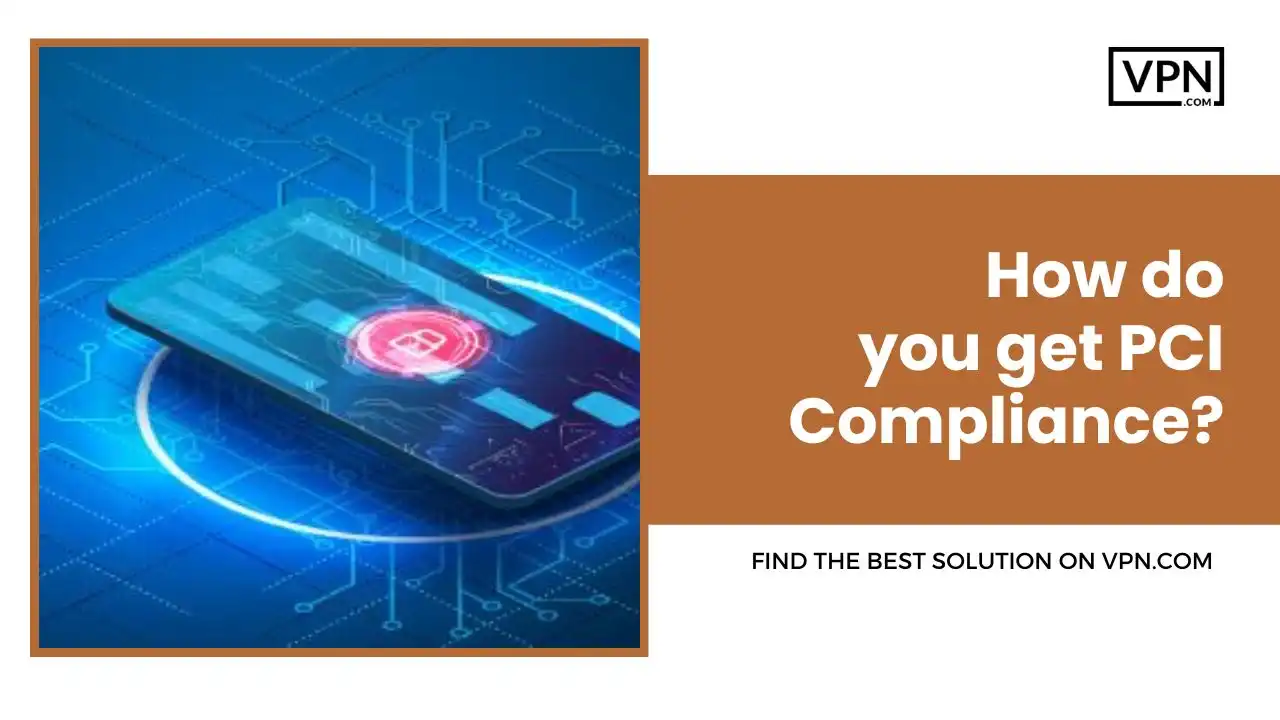
Achieving full PCI compliance involves structured processes guided by experts encompassing:
- Assessment It conducts extensive PCI gap assessment of existing infrastructure, policies, and procedures against all relevant PCI Data Security Standards to identify deficiencies.
- Remediation It creates thorough remediation roadmaps addressing all discovered areas of non-compliance via technology fixes, new policy measures, and upgraded controls then executes changes.
- Compliance Validation It leverages PCI auditors to verify and certify all previous PCI DSS gaps fully meet standards across annual assessments or after major upgrades.
- Maintenance It runs quarterly self-assessments against standards coupled with prompt vulnerability remediation to maintain continuous certified compliance all year long.
For most organizations, partnering ongoing with specialized PCI advisory services expedites getting compliant, avoiding common pitfalls, and keeping certifications updated as requirements evolve. Investing in the necessary security technologies, resources and attention to attain and preserve compliant operations protects companies over the long term.
How Much Does PCI Compliance Cost?
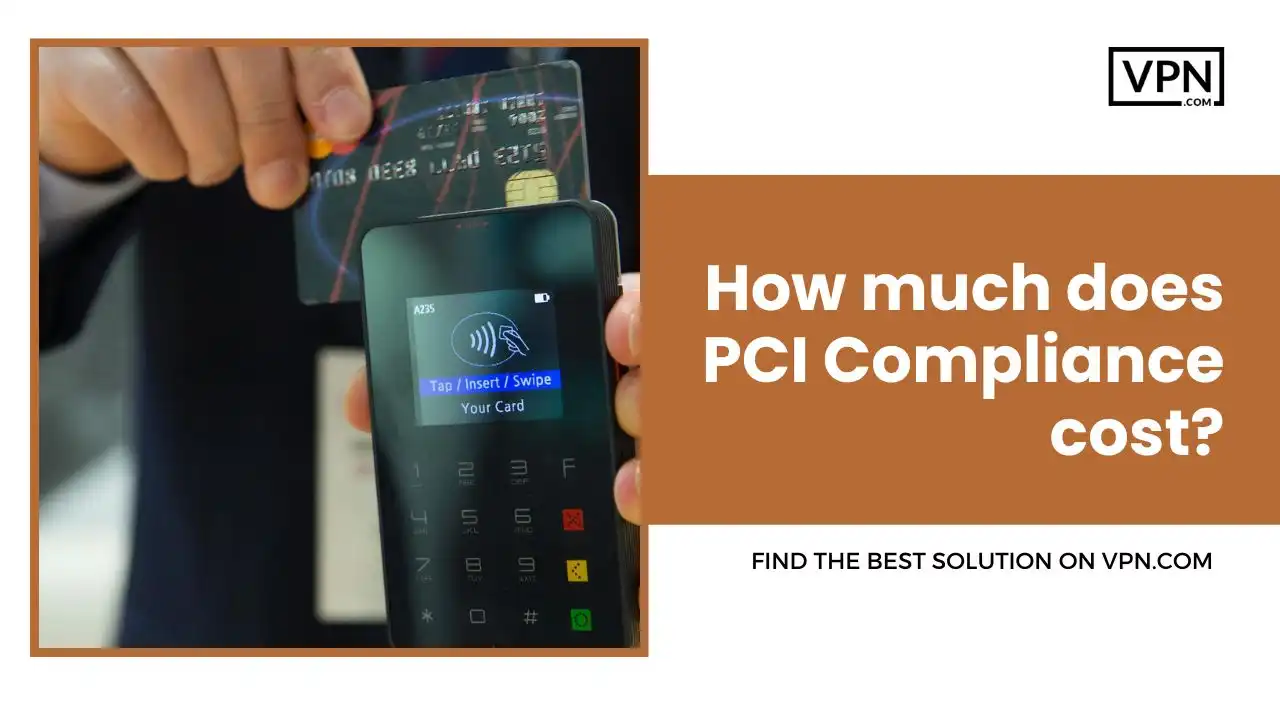
Typical PCI compliance costs vary based on business size and structure from as little as $2,500 annually for very small merchants up to $200,000+ for major multi-national enterprise retailers. Expenses stem from:
- Consulting for gap assessments, audits, policies, and technology remediation
- Employee training and management of compliance processes
- Upgrading hardware/software like firewalls, encryption and monitoring
- Annual compliance auditing and validation exercises
Ongoing maintenance efforts also continue with quarterly or monthly checks requiring internal staff, managed IT services, or dedicated compliance teams in larger corporations.
However, compared to catastrophic breach fines exceeding $1 million and associated legal damages or lost revenues, PCI compliance costs seem relatively inexpensive insurance for companies handling vast payment volumes.
FAQs
Who issues PCI compliance rules?
The PCI Security Standards Council founded by 5 major card brands develops and updates PCI Data Security Standard regulations all merchants must follow when storing, processing, or transmitting payments.
What are common PCI compliance mistakes?
Insufficient data encryption, lack of access controls, inadequate network segmentation, poor password policies, limited monitoring of card data access, and delays in vulnerability patching represent the most frequent compliance gaps auditors flag.
Do PCI compliance rules apply to all companies?
Yes – any business that accepts credit or debit card payments from customers must comply fully or risk penalties, lawsuit damage, and being cut off from payment processing, which most cannot survive. Exemptions are very limited.
How often is PCI compliance validated?
Every 12 months a PCI Certified Assessor must affirm compliance to renew merchant certifications. Major changes like new systems or breaches also require between-audit re-assessments to maintain compliance continuously.
What happens after a failed PCI audit?
Merchants that fail audits enter higher risk categories where acquiring banks monitor them more strictly or increase transaction fees substantially. Continued failure prompts processors to levy fines or eventually suspend payment acceptance permissions until compliance is restored.

Get Started w/ NordVPN Today
- Top-rated VPN for OS unknown
- Ultra-fast speed in US in 2024
- Save 69% off with VPN.com Discount
- Plans starting at $2.99/month
- Rated 4.5/5 on Google Play with over 825,000 reviews
- Rated 4.7/5 on Apple App Store from 6,600 users
The Bottom Line
As data breaches proliferate globally, maintaining PCI compliance stands central to customer trust and business survival. While an involved process, the risks facing retailers, restaurants, or other merchants that handle sensitive cardholder data without adequate controls are existential. With fines, lawsuits, and revenue losses from banking blacklists spelling quick demise.
Investing diligently in PCI compliance requirements, compliant security policies, specialist resources, and technologies provides the best assurance that customer confidence and operations continue without disruption as threats mount worldwide. Ultimately, PCI compliance costs pale compared to damages inflicted on non-compliant entities in the modern fraud landscape.
Customer Reviews for NordVPN: In-Depth Review, Tests, and Stats

Connection issues with MLB.TV
May, 2 2023

Prompt customer service
May, 6 2023

I would highly recommend
December, 15 2023



